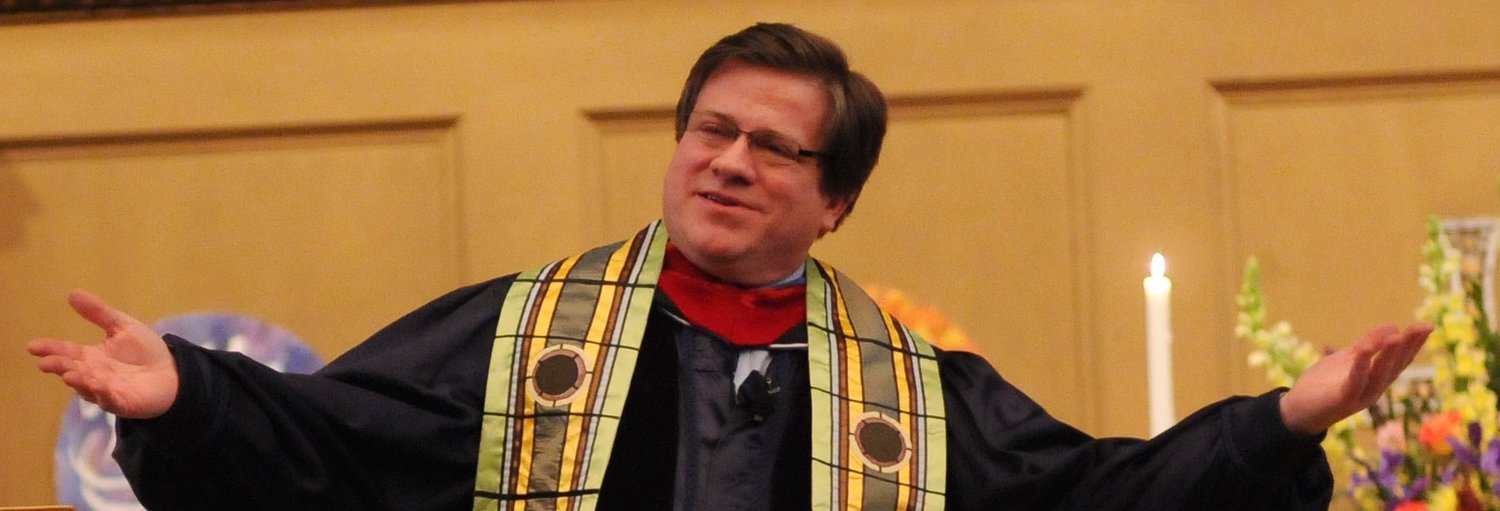Theory of Ministry
Preaching and Teaching. In the Protestant tradition from which we emerge, there is a clear sense of "the priesthood of all believers."
I believe the ordained Minister is called to equip the members of the congregation in determining how it is each of them is called to ministry. I ask with our people "who?" and "why?", and then consider with them "What and how?"
Still, the Minister holds the sacred responsibility of crafting, with partners, a service of worship that strives for excellence. Worship reflects the seasons of the year and the cycles of life. Services reflect the congregation as it is, with the rich heritage of our tradition; but we also point to the congregation of the future. We meet to rehearse the wise, generous and compassionate intergenerational community we believe it is our aim to be and to become. We strive for the values of Beloved Community.
In Baltimore, which is a humanistic congregation with a Sanctuary richly decorated with Christian iconography, I have been drawn to practice an annual celebration of the Lord's Supper using the historic service published in Hymns of the Spirit (with modifications to gendered language). This has allowed me a chance to consider my own Christian roots, to preach on Bible texts and to remember my years as Protestant chaplain at the Rogerson House memory center.
Videorecordings of several sermons are published below (there are more on my Vimeo site), and both a prayer and a published sermon that I have presented at the Joseph Priestley District Racial Justice Conference in Autumn 2016 are published on the "Public Theologian" page.
Pastoral care. Again, as the people grow in their capacity as "the priesthood," we are all called to be present to one another, "some in power, some in pain" (Pat Humphries). The corporate worship service is a celebration of the richness of who we are, and provides an opportunity for all of us to minister to each other. Our collective calling in the world is to minister to the challenges faced in the world and to share the joy found ion right relationship and varied accomplishments.
The called Minister should be counted on to be present to members of the congregation who are facing critical life transitions: births and comings-of-age, marriages and divorces, the new job and the longed-for retirement, illnesses and hospitalizations, decline and death. The Minister assists people in ritualizing their life transitions. The Minister is also required to train people who can assist in the task of visitation and accompaniment of members of the community. My own experience of Clinical Pastoral Education is the basis for my understanding of how it is we accompany each other while encouraging the agency of each person being accompanied.
